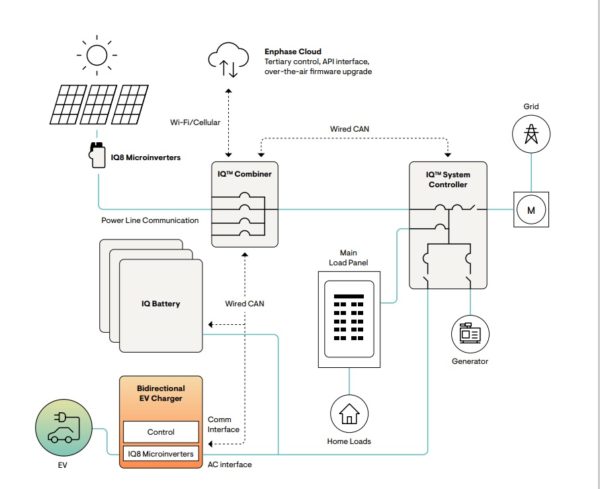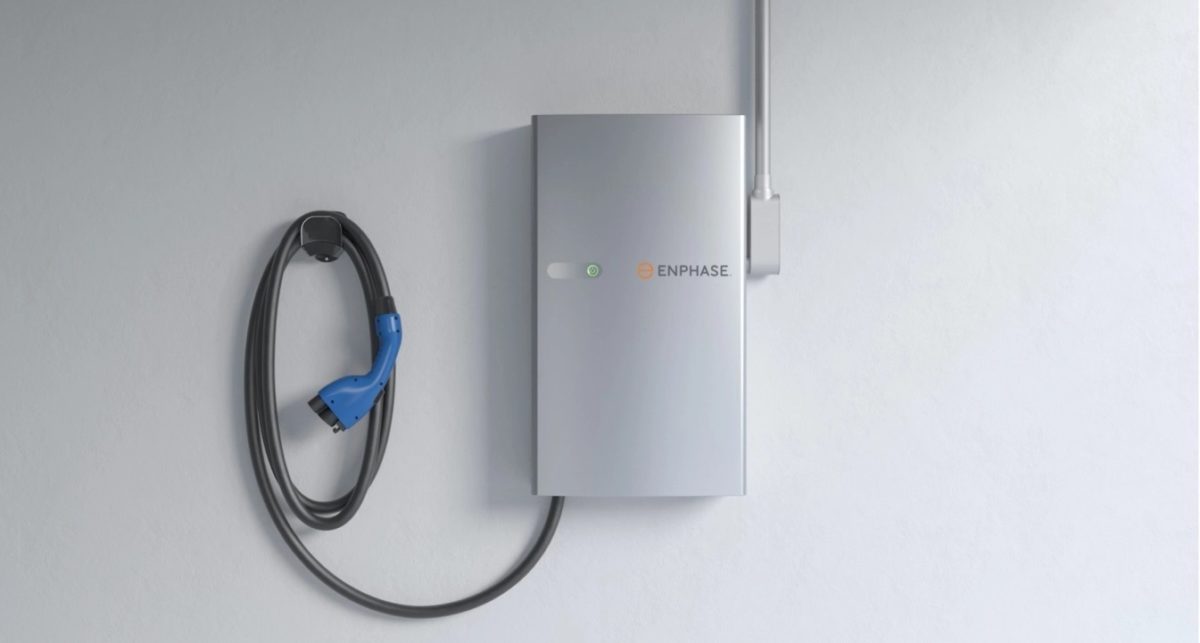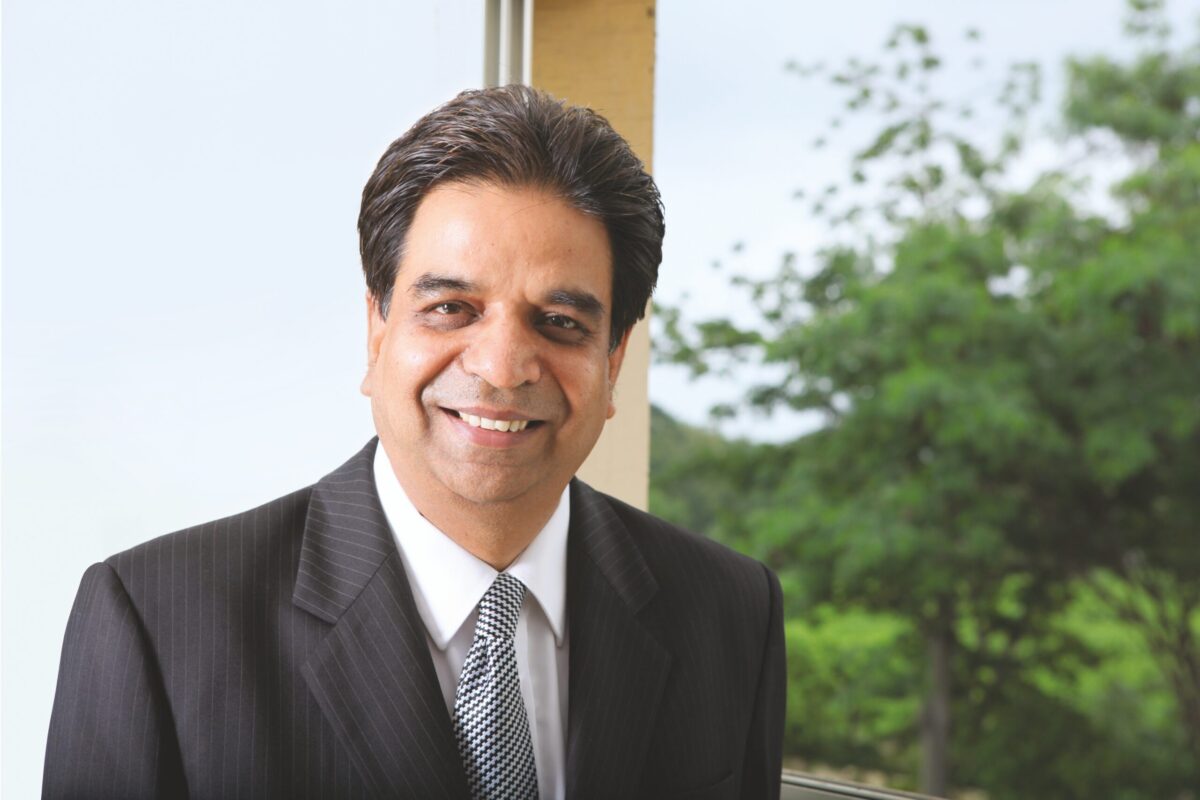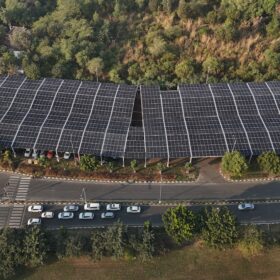From pv magazine Global
Enphase Energy, known for its microinverters, has announced a successful demonstration of its first bidirectional EV charger, which enables vehicle-to-home (V2H) and vehicle-to-grid (V2G) use.
The charger will work in conjunction with the Enphase Energy System, which includes IQ microinverters, the IQ Gateway and system controller. These are all managed by the Enphase app, where homeowners can see the flow of energy and see the level of charge of the EV battery.
By leveraging the power of the microinverter to convert DC power of the car to AC power of the home, the bidirectional charger connects to EV, and both charges and discharges the car battery. The IQ microinverter converts DC power of the car to AC power of the home.
The Enphase bidirectional charger can be used in three ways:
- Vehicle-to-home charging allows the bidirectional EV charger to power the home in the event of a power outage. The way it works is that the Enphase Energy System detects the outage, isolates the home from the grid, instructs the bidirectional charger to discharge the EV battery to provide power to the home.
- Vehicle-to-grid charging lets homeowners participate in programs with their utility where they share the energy from the EV battery with the grid, and get paid for it. Read more about V2G charging in today’s news here.
- Green charging is a function that lets homeowners use the bidirectional charger to power the home during periods when utility rates are high.

The bidirectional charger requires 240 V AC, and it can connect directly to the grid or through IQ System Controller. Enphase cautions, however, that when connected directly to the grid, some V2H features are disabled. The company says that its EV charger is expected to work with electric vehicles that support stands such as CCS (combined charging system) and the Japanese charging standard, CHAdeMO. At present, separate demonstration prototypes are made for CCS and CHAdeMO. It supports 200 VDC to 1000 VDC for EV batteries.
Enphase is working with EV manufacturers to bring this revolutionary technology to market. A time frame for release has not been announced.
This content is protected by copyright and may not be reused. If you want to cooperate with us and would like to reuse some of our content, please contact: editors@pv-magazine.com.









By submitting this form you agree to pv magazine using your data for the purposes of publishing your comment.
Your personal data will only be disclosed or otherwise transmitted to third parties for the purposes of spam filtering or if this is necessary for technical maintenance of the website. Any other transfer to third parties will not take place unless this is justified on the basis of applicable data protection regulations or if pv magazine is legally obliged to do so.
You may revoke this consent at any time with effect for the future, in which case your personal data will be deleted immediately. Otherwise, your data will be deleted if pv magazine has processed your request or the purpose of data storage is fulfilled.
Further information on data privacy can be found in our Data Protection Policy.